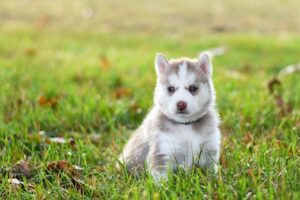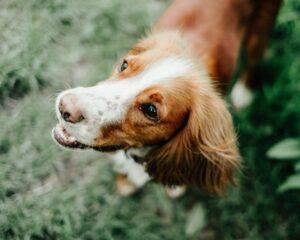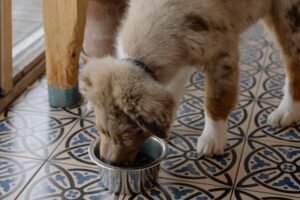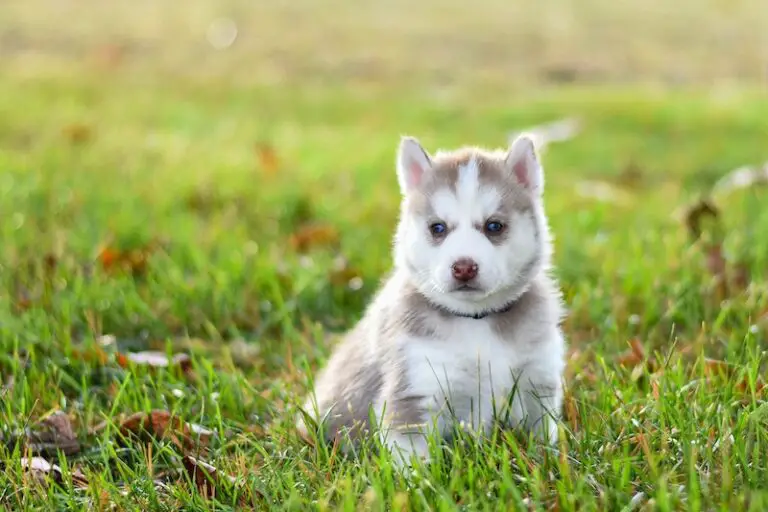Is My Dog Weird For Eating Grass?
If you are reading this, you likely have a pet dog that you are crazy about! We want the best for our furry friends and there are good reasons for that. They are loving and loyal companions, they are protective and trustworthy ‘guard dogs, they are perfect playmates for children, they will work hard to keep your home safe from intruders, and they will give you years of love.
It’s no surprise that dogs are still the most popular pet to have around the world. As lovable as they are, there are some quirks about them too, such as their habit of eating odd things such as grass. And since people tend to view their pet dog as a very real and active part of their family, most will wonder if this habit is normal and more importantly, if it is harmful.
So, why do dogs eat grass? When you find your dog munching on grass in the backyard or at the park, it can be a little disconcerting at first. But there’s no need to worry almost all dogs will eat grass from time to time so this isn’t something unusual for your dog. There are many theories about why dogs eat grass. One belief is that they eat grass when they want to throw up because the grass will end up coming back out the same way it went in.
This may seem like a bad idea to those with a weak stomach, but it is a natural and useful instinct for dogs. It can be beneficial to your dog as many times they eat grass because of an upset stomach caused by something they ate (or ate too much of). Grass can also help to scrape excess food out of their stomachs.
Many experts also believe that a dog eats grass to obtain nutrients and fiber not found in their regular diet, specifically when they are on a commercial dog food diet or any other type of highly processed dog food. Most experts agree that if a canine is eating grass, it is a sign that they are lacking something in their diet.
In nature, dogs will graze on grasses and leaves to get the vitamins, minerals, and nutrients that they need to stay energized and healthy. Although it is generally believed that when a dog eats grass, it is just an instinct being expressed, it could also be a prompt for intervention.
When Dogs Eating Grass Is a Concern
 Again, while there is no immediate need for concern when your dog is eating grass, there are a few things to look for and consider just to be safe. If you find your dog eating grass in large quantities, then this could be a sign that they are missing something nutritionally.
Again, while there is no immediate need for concern when your dog is eating grass, there are a few things to look for and consider just to be safe. If you find your dog eating grass in large quantities, then this could be a sign that they are missing something nutritionally.
Some symptoms that need attention include:
- Colic (painful stomach cramps)
- Vomiting
- Diarrhea
If you are noticing any of these symptoms in your dog, it is important to speak with your veterinarian. These could be signs of an ulcer, sensitivities to certain foods, or even a more serious ailment. If you believe that there is something else going on, your veterinarian can help to provide an accurate diagnosis.
Dogs Eating Grass As a Coping Mechanism
Dogs may also eat grass in an attempt to cope with stress or anxiety. This could be due to some environmental change that they are experiencing or some other form of distress.
If your dog is suddenly eating a lot of grass, then you should consider the environment where they are living and any changes that have taken place recently, such as a big move or a change in the daily schedule. Stress can cause chronic upset stomachs in dogs, so if you are noticing this issue with your canine friend, then it is best to take steps to alleviate their stress and give them time to adjust.
This type of coping behavior can also become more common around the change of seasons or during holiday celebrations. If you live in an area that is prone to extreme weather changes, then your dog may begin stressing out every time a storm rolls through. They may also feel stress during holiday celebrations that involve fireworks, large groups of strangers, and perhaps long absences away from you.
Improving Your Dog’s Mental Health
 To improve your dog’s mental health, make sure you are taking them on regular walks for exercise. Take time each day to bond with your dog and build a trusting relationship. This will help them to feel safe and secure.
To improve your dog’s mental health, make sure you are taking them on regular walks for exercise. Take time each day to bond with your dog and build a trusting relationship. This will help them to feel safe and secure.
Be sure to give your dog plenty of opportunities for playtime and socialization with other dogs, but be mindful of who they are playing with and how rough they are being. Dogs can become just as stressed out by fighting or constant competition with other dogs.
During times of stress or upsetting stimuli as mentioned above, try to create a calm and safe environment for your dog. In some cases, you can also try playing soothing music to help calm your pet down. Cuddle up with them in bed or take them to a quiet place.
It’s also important not to punish your dog for eating grass. The instinct is deeply rooted in their history and necessary for their health. If you punish your dog, they will only become more anxious and upset, which can lead to other problems such as chewing or even excessive barking.
What Other Weird Things Do Dogs Eat?
Dogs are not picky eaters at all, they will pretty much eat anything that they can get into their mouths. If you have ever caught them eating dirt or rocks, then you know just how strange some of their habits can be. Just like humans, dogs have different cultural backgrounds and behaviors.
This is why an Italian Greyhound may eat grass when they are upset or stressed, while a Bloodhound will go for whatever food they can find laying around. With dogs, it’s not really about what is available to them at the moment; it’s more about what their instincts tell them that they should be doing in the given situation.
It is important to understand your dog’s eating habits will change as they get older. Sometimes, dogs will develop a strange hunger for non-traditional items such as dirt, rocks, stones, cat vomit, or antifreeze among others.
If you notice your dog eating these kinds of toxins or unusual things regularly then it is time to see your veterinarian. Whether the dog has a strange craving for these types of items or is just trying to get attention by playing a prank, it is probably best to get them checked out by an expert!
How To Avoid Your Dog’s Grass-Eating Altogether?
Of course, the best way to prevent your dog from regularly eating grass is to provide the best possible diet for them. You can even talk to your veterinarian about additional supplements you can add to their food. This will make them less likely to seek out the grass to get the nutrients they need.
If you are not able to prevent your dog from eating grass, then try to provide smaller or split portions of food throughout the day. This will help them feel full for longer periods and it will also reduce cravings for non-traditional food items.
What Is The Best Diet For Dogs?
Cooked meats, vegetables, brown rice, and whole grains are excellent choices for any dog’s diet. Remember that your pet is what they eat. Make sure you put more of an emphasis on quality food instead of processed or fast foods (which may contain poisonous chemicals or other unhealthy additives).
Your dog’s health will improve greatly by eating a quality meal plan. Avoid feeding them your food too often, only provide leftovers if you are sure they are safe to eat.
Foods You Should Never Give Your Dog
 Keep in mind that there are certain foods that dogs should never have, even if your veterinarian says it is okay to try them out on occasion. This list includes onion, garlic, grapes, raisins, avocados, seeds, nuts, and caffeine.
Keep in mind that there are certain foods that dogs should never have, even if your veterinarian says it is okay to try them out on occasion. This list includes onion, garlic, grapes, raisins, avocados, seeds, nuts, and caffeine.
Just because you or somebody else has given it to them in the past does not mean that you should try it again! Remember to be diligent about your dog’s diet and always double-check with an expert before doing something new.
It is also important to watch the amount of food that your dog eats because this may cause them to eat unusual things out of hunger. If you do not feel comfortable watching them, then make sure they are on a strict feeding schedule and offered multiple meals throughout the day.
Not only will a quality diet keep your dog from eating grass, but it will also have a positive impact on their overall health. This will reduce the chances of them getting sick and they may be more inclined to eat when they receive nutritious meals throughout the day.
Eating Grass Is Completely Normal for Dogs
Again, this is not something you should worry about too much because it is completely normal for dogs to occasionally eat grass. As long as there are no unusual cravings or they are not eating more than their fair share, then this quirky habit should be easy enough to manage.
As long as you provide your dog with a great diet and reduce the amount of stress in their life; your furry friend will be just fine!

